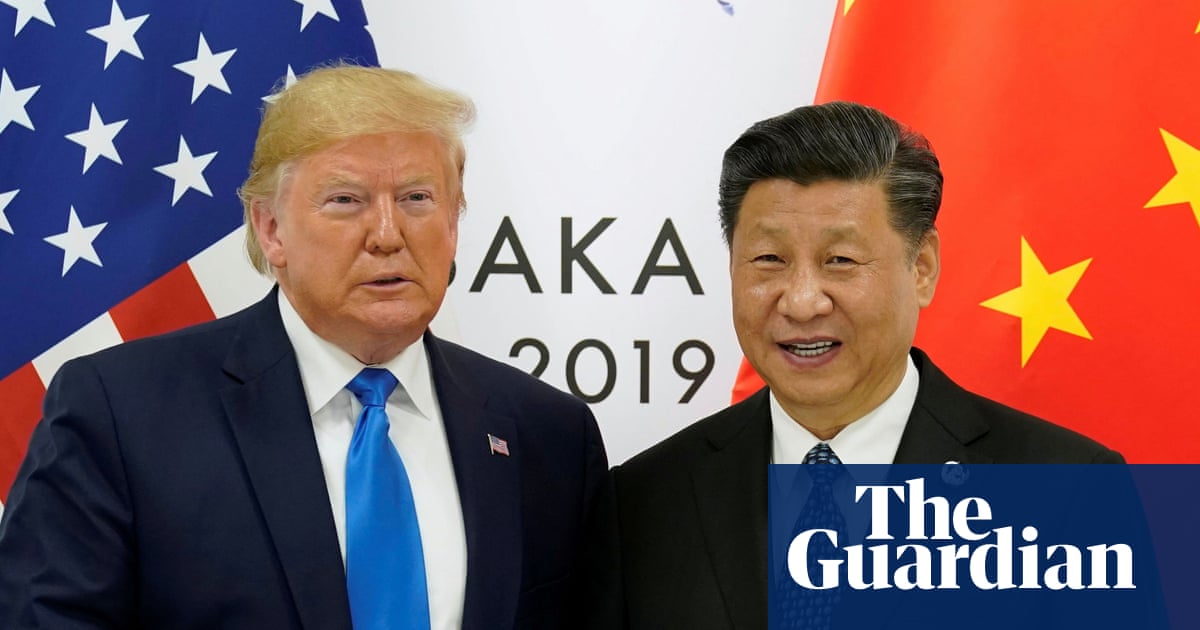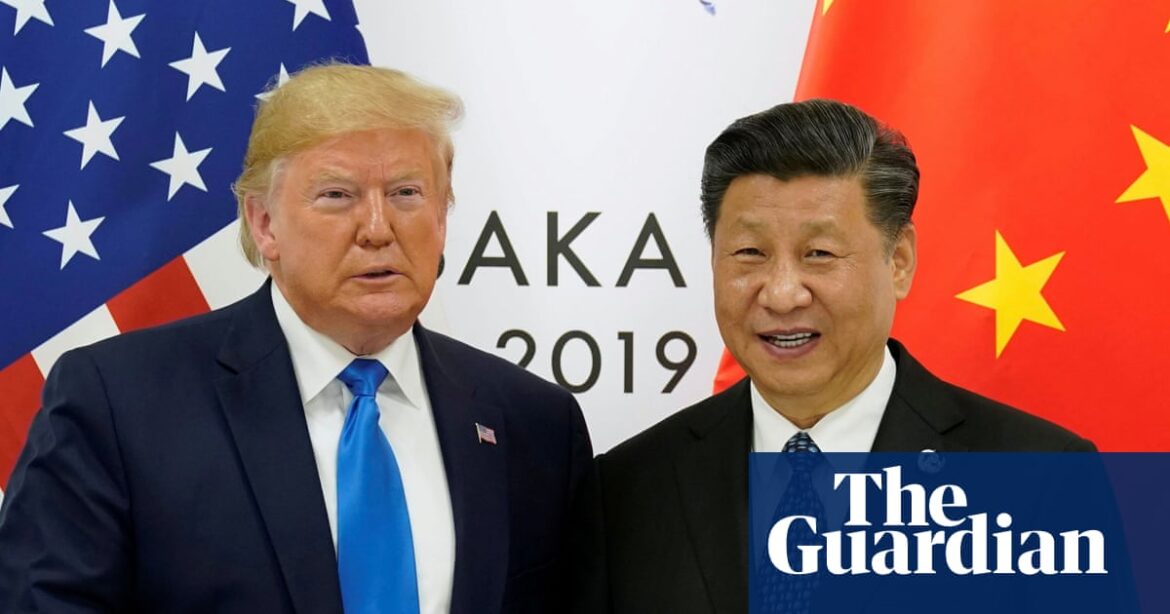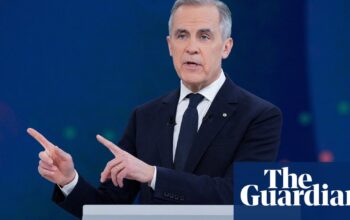
Donald Trump has invited China’s hardline president, Xi Jinping, to his inauguration next month in an audacious diplomatic gambit that Beijing has reportedly indicated would be rebuffed.
The president-elect’s overture – which his staff said might also be extended to other leaders – broke with historic precedent, which holds that no foreign heads of state are expected to attend US presidential inauguration ceremonies.
It also represented a brazen statement of the unorthodox foreign policy approach Trump intends to adopt, given that China has emerged as America’s most important global adversary and that the incoming president has threatened to impose tariffs of up to 60% if the country does not act to stop the entry of fentanyl and other drugs into the US.
Trump disclosed his initiative in an interview following his symbolic opening of the New York Stock Exchange on Thursday and acknowledged that it amounted to a risk.
“Some people said, ‘Wow, that’s a little risky, isn’t it?’” Trump said. “And I said, ‘Maybe it is. We’ll see. We’ll see what happens.’ But we like to take little chances.”
Talking to CNBC, he added: “We’re going to be having a lot of talks with China. We have a good relationship with China. I have a surprising relationship.
“Now, when the Covid came in, I sort of cut it off. That was a step too far. That was, as they say, a bridge too far. But we’ve been talking and discussing with President Xi, some things, and other world leaders, and I think we’re going to do very well all around.
“We’ve been badly abused from an economic standpoint … We’re not going to be abused any more.”
Karoline Leavitt, the incoming press secretary in Trump’s White House, told Fox News that the invitation was “an example of President Trump creating an open dialogue with leaders of countries that are not just our allies, but our adversaries and our competitors, too”.
Trump hosted Xi at his Mar-a-Lago home in Florida during his first presidency and has often voiced admiration for his intelligence and autocratic approach despite the contentious relationship between the US and China.
Nevertheless, inviting Xi to witness his inaugural address was “shockingly cavalier … from the standpoint of American values”, Edward Frantz, a presidential historian at the University of Indianapolis, told the Associated Press.
Sources in Beijing said Xi would reject the invitation and that China’s communist regime would probably be represented at the ceremony by the country’s ambassador to Washington, CBS reported.
Attending would potentially put Xi in a subservient position to Trump, being forced to listen passively to the incoming US leader saying whatever he chose in the full glare of the global media spotlight, while lacking the ability to respond, analysts said.
after newsletter promotion
It would also make him a witness to a peaceful transfer of power in a democratic setting absent under China’s system of one-party rule.
“China would be concerned with the risk of potential hostile actions by the Trump administration after Xi’s visit, which would jeopardise Xi’s authority and credibility,” Yun Sun, director of the China programme at the Stimson Center, told the Wall Street Journal.
However, even a rebuffed invitation potentially puts Trump on the front foot, some analysts believe, with the initiative likely to serve as an indicator of his future foreign policy.
“This is a reminder of Trump’s fondness for foreign policy by grand gesture and his willingness to trample diplomatic codes with his unpredictable approach,” CNN noted.
“The Xi invitation also shows that Trump believes that the force of his personality alone can be a decisive factor in forging diplomatic breakthroughs.”
There was no immediate confirmation of which other foreign leaders may be invited, although there is speculation that an invitation could be extended to Viktor Orbán, Hungary’s hard-right prime minister, whom Trump repeatedly praised on the campaign trail and who has visited him at Mar-a-Lago. There was also speculation surrounding the possible attendance of Giorgia Meloni, Italy’s prime minister.
Source: theguardian.com



